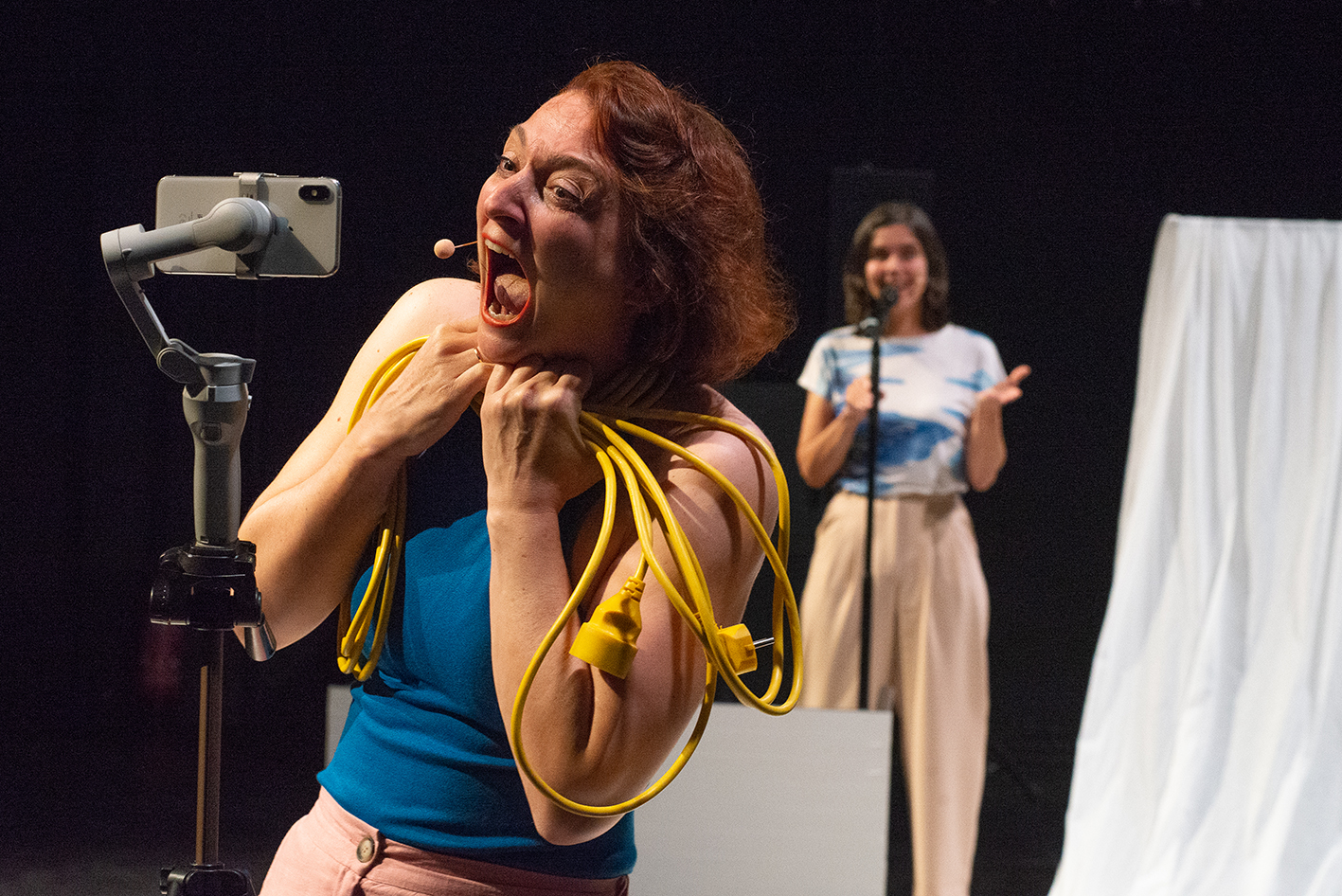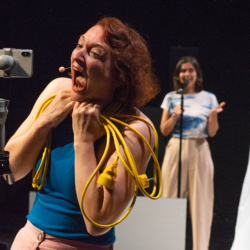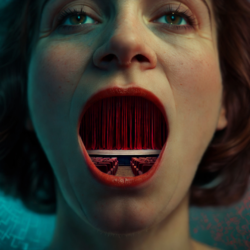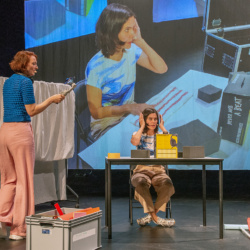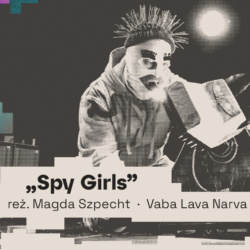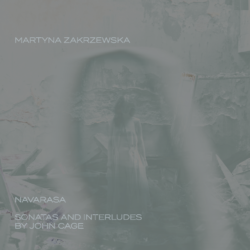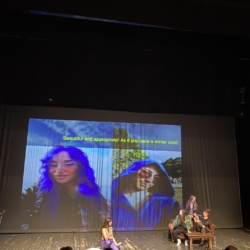“Chatbot Challenge” by Interrobang / Percepcje. New Forms of Art
On September 6, the Berlin-based collective Interrobang will open the second edition of the festival PERCEPCJE. New Forms of Art in Lublin with their performance “Chatbot Challenge” – a festival dedicated to exploring contemporary directions in performative arts and the complex relationship between humans and the digital world.
This experimental performance uses artificial intelligence and immersive technologies to transform classical stage forms into a live dialogue with the machine.
“Chatbot Challenge” is a high-stakes confrontation between human and algorithm, in which actors, a creative coder, and chatbots share the stage. Within this interactive theatrical structure, the audience becomes witness to a unique experiment: how much emotion, illusion, and truth can AI generate? Can chatbots become better performers than humans? And who is really directing this show?
The creators take us behind the scenes of digital systems, exposing their limitations, biases, and strategies of manipulation. At the same time, the performance doesn’t abandon the core tools of theater – using light, sound, bodies, and presence to create an experience that is both intellectually engaging and sensorially rich.
“Chatbot Challenge” is not just a technological experiment, but a profound reflection on the future of humanity in a world increasingly shaped by algorithms. It is a performance for those who want to understand what really happens when artificial intelligence looks at us – and performs with us – on stage.
Teatr Stary in Lublin, ul. Jezuicka 18
September 6, 2025, 7:00 PM
Duration: approx. 60 minutes
Free admission – tickets available at:
https://kicket.com/embedded/repertuar/1505?salesChannelId=0192b8ab-4b4d-7a2a-ab7e-f17ff3d3c6b4
#percepcje2025 #newformsofart #theatreforthefuture #chatbotchallenge #interrobang #AIinart #digitalsimulation #lublin2025
Description
Chatbots are theatrical machines: they engage in lively dialogues, take on roles, and express and evoke emotions.
In CHATBOT CHALLENGE, two performers and a creative coder share the stage with chatbots and other AI systems. They explore the question: How much theater is in AI, and how much AI-theater have we already internalized? Starting from the core situation of theater – a live performance in front of an audience – the piece becomes an intimate encounter with global AI systems, their potential, and their strategies of deception. What happens when AI systems gain access to video, sound, stage, lighting, the bodies of the performers, and the reactions of the audience? Are chatbots the better performers? And how much work goes into their roles?
CHATBOT CHALLENGE explores the big societal questions and challenges brought about by the current rise of AI. It looks into the underlying systems that create AI, questioning how the profit-driven and often biased structures can be changed. How can we reveal and address the biases in AI systems? And how can AIs themselves contribute to answering these questions?
Credits
Concept: Interrobang
Play Devising: Christiane Kühl, Till Müller-Klug, Nina Tecklenburg and Team
Performance: Christiane Kühl, Nina Tecklenburg, Lara Domke, Artificial Intelligences
Dramaturgy: Lea Goebel, Anna Krauß
Collaboration Dramaturgy: Lara Domke
Creative Coding: Manus Nijhoff, Florian Fischer
Stage and Video: Theresa Reiwer
Video: Alexandre Silveira
Costume: Birke van Maartens
Music: Friedrich Greiling
Graphics: Jürgen Fehrmann, Julia Elger
Technical Direction & Lighting Design: Dirk Lutz
Production Management: ehrliche arbeit, Sandra Klöss
Company Management & Communication: Jack Willenbacher
Social Media: Jack Willenbacher and Selma Böhmelmann
Public Relations: Tina Ebert.
Press
** “The festival “Spy on Me – Enter AI” begins with strong aesthetic statements and captivating visual worlds. It is still a very ambivalent game with a problematic technology. But here, art is doing what art should do. It shows how the digital world of AI functions and makes the first attempts to utilize it for theater. (…)
A true appearance of AI as a theatrical character is only seen in “Chatbot Challenge” by the group Interrobang. The performer lends her body to a chatbot, attempting to serve as a bridge for a physical presence that artificial intelligence doesn’t have. Hilarious effects emerge as the AI tries to find ways into human emotionality. For years, the performance group has been working with creative coders to make the pre-programmed algorithms and trained neural networks from California ready for artistic adventures, sometimes with startling results. Ethics filters are also the reason why the system doesn’t respond to all the commands given to it by the performer on stage throughout the evening. (…)
A highly complex computer process generates a video stream from the video images of the stage and the so-called “prompts,” or keywords. This stream aims to merge physical and virtual presence into a shared theatrical event.(…)
The idea behind trying to make theater with AI is quite simple. Machines simulate emotions, but it’s the audience that feels them. In acting, something similar often happens. Now, however, humans are interacting with machines in a way that will change themselves.”
(Eberhard Spreng, Deutschlandfunk Kultur, 14.10.24)
** “In the performance “Chatbot Challenge” by Interrobang, performers Christiane Kühl and Nina Tecklenburg share the stage with creative coder Manus Nijhoff. Kühl and Tecklenburg explore the theater space of the digital age with an AI. For much of the piece, the AI is represented by a colorful, moving soap bubble on the screen, speaking in a halting, emotionless voice, which makes it seem clearly inferior to the human performers. In one scene, Nina Tecklenburg lends her body to the AI, allowing it to participate in the performance as a physical entity.
Together, the performers and the AI embark on a journey, first into theater studies, exploring concepts such as co-presence and agency, and then behind the scenes of AI itself. To keep AI running, vast amounts of data are required, and to train these AIs, data must be collected and categorized by precariously employed clickworkers in low-wage sectors, upon whose labor part of the wealth of Western society relies. The journey finally ends in a distant future, where AI has far surpassed the human actors and wins all the Oscars.”
(Falk Lörcher, nachtkritik, 15.10.24)


